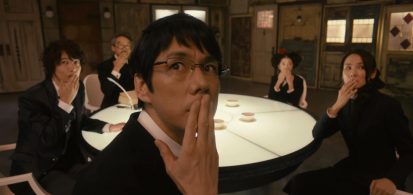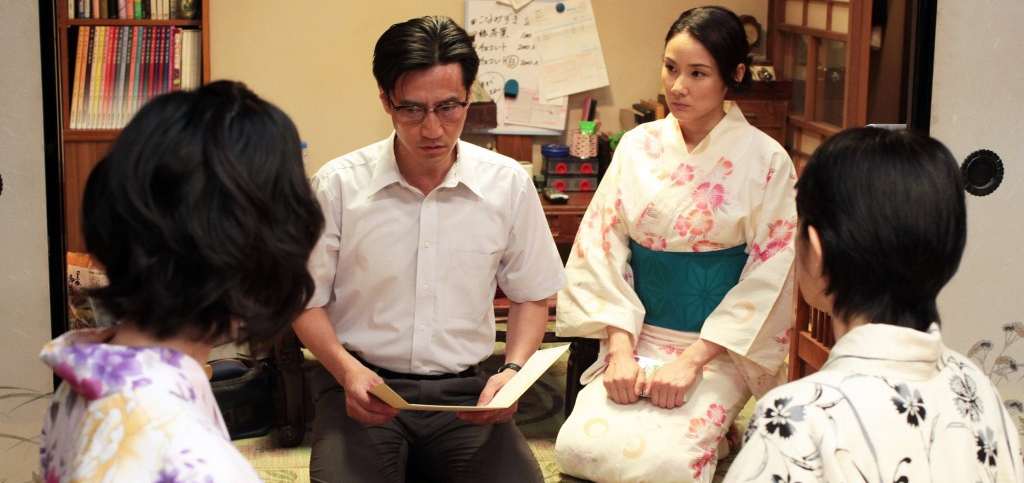LOVE AND PEACE is a playful comment on escapism and fame in Japan, that sees Sion Sono directing for a markedly different audience: the Japanese family.
Poison Berry in My Brain
Yūichi Satō’s adaptation of Setona Mizushiro’s manga series is a cute rom-com about a woman whose romantic encounters are handled by a meeting board in her mind.
Library Wars: The Last Mission
LIBRARY WARS: THE LAST MISSION takes a scattershot approach to a near-future manga series on free speech and censorship, finding impressive action sequences but little else.
Tag
TAG is an imaginative, weird, and extremely violent return to form for Sion Sono, offering the same approach to cinema that helped him carve out his unique and lauded position in Japanese cinema today.
At Home
AT HOME is literate enough to meld various influences into a coherent product, however, its conclusions are poorly expressed and finally disappointing.
The God of Ramen
Takashi Innami’s documentary was eleven years in the making, a subtle and unpretentious character study as much about coping with death as it is the making of ramen.
Three Sisters
Three Sisters is an eerie concoction of expected narrative tropes, garnished with a hint of acerbic wit, topped with spurts of comic extravagance, much like the experimental batches of confectionery made by the Toraya family that tickle the taste buds of everyone in the film.
Tokyo Tribe
TOKYO TRIBE is a difficult film at times, however, on the whole it is a remarkably silly piece that is simultaneously able to highlight more serious issues that permeate one of Japan’s most frequently depicted organisations.
Samurai Hustle
Samurai Hustle aims to put a dumb smile on your face and never becomes severely aggravating in doing so. If you’re after a great big guffaw among the headier and stranger offerings at the festival, then look no further.
Lady Maiko
Masayuki Suo’s loose Japanese remake of My Fair Lady is charming, ludicrous, amateurish, languid, and fun, all in equal measure. In the final analysis, it’s a film entirely worth seeing, primarily as a curious and rare case study of what happens when a canonical Western narrative is appropriated in a totally different national and industrial context.









